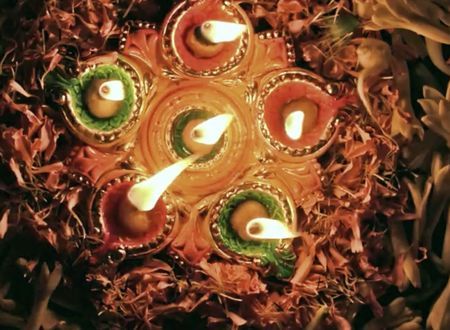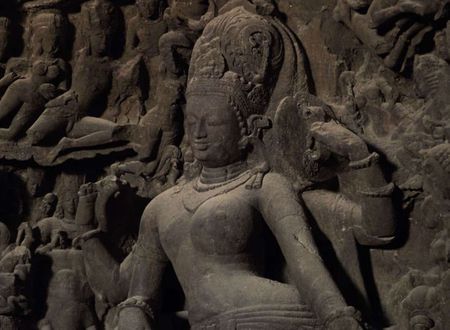I have had a lot of unusual friendships.
I recently wrote about my unusual friendship with Madhukar.
In 2013-14, I attended a monthly Gita discourse conducted by Swami Mitrananda of Chennai Chinmaya Mission. I would attend it together with my Mom’s cousin’s father-in-law who was 80+ years old. We lived in the same vicinity and walked together to the discourses and then back home. We forged a bond together through these interactions. I didn’t even get to know his full name – I just knew him as NRS.
We didn’t see each other as relatives – we were friends who had a mutual interest in spirituality.
I asked NRS how he got into spirituality and Gita. He attended Swami Ranganathananda’s live Bhagavad Gita discourses in Delhi, and the rest was history.
I immediately went to the Chennai Ramakrishna book store and looked to purchase Swami Ranganathananda’s Bhagavad Gita books. They were out of stock, but his Vivekachudamani book was available. I purchased it. I loved the book.
Confession time: I read only 75 odd slokas, I haven’t finished the book.
Swami Ranganathananda’s Vivekachudamani discourses are also on YouTube, I started them but left them unfinished. I know, I should not leave stuff unfinished, I should not take on new tasks, videos et al till I finish what I started 🙂
Anyway, the Vivekachudamani (from what I have read) is beautiful. It is supposed to be a Prakarana grantha, an introductory text before we delve into the Upanishads, but I felt this text was pretty complex as it is, especially the later verses (It is a huge text of about 600 verses).
Here are 4 verses/ideas from the Vivekachudamani that struck a chord with me.
1 – Possessing as many as 5 Sense Organs, it is Natural for Humans to Get Tempted
शब्दादिभिः पञ्चभिरेव पञ्च
पञ्चत्वमापुः स्वगुणेन बद्धाः ।
कुरङ्गमातङ्गपतङ्गमीन
भृङ्गा नरः पञ्चभिरञ्चितः किम् ॥ ७६ ॥śabdādibhiḥ pañcabhireva pañca
pañcatvamāpuḥ svaguṇena baddhāḥ |
kuraṅgamātaṅgapataṅgamīna
bhṛṅgā naraḥ pañcabhirañcitaḥ kim || 76 ||The deer, elephant, moth, fish and bumble bee perished by being attached to one sense. What, then, is the fate of a human being, who has all five senses?
The hunter lays a trap for the deer by playing sweet, mellifluous music. The poor deer follows the music and finds herself in trapped in the hunter’s net.
The hunter switches tack for the elephant: he constructs the figure of a she-elephant. Longing for the touch of a companion, the elephant lands into the hunter’s pit.
The moth likes light – and steps right into the light from the fire, perishing instantly.
No explanations required to catch a fish – we know to tempt the fish’s tastebuds by providing food as bait.
The Bumblebee is tempted by the smell of the flower – when she goes near, the flower closes her petals, trapping the poor bumblebee.
Here’s the kicker. One sense organ leads these five creatures to peril.
We humans have all five sense organs.
Our troubles are 5Xed. We have to be five times as alert.
And digital marketers, social networks, restaurants are out to tempt our sense organs from all sides. Alertness is key. No is a powerful word. We have no obligation to say yes to anyone. Our primary responsibility is to protect our resources – attention, energies, and direct them to worthwhile causes – work, social causes, family.
And most importantly: ourselves.
2 – Patience (Titiksha) Consists of Three Pillars
सहनं सर्वदुःखानामप्रतीकारपूर्वकम् ।
चिन्ताविलापरहितं सा तितिक्षा निगद्यते ॥ २४ ॥sahanaṃ sarvaduḥkhānāmapratīkārapūrvakam |
cintāvilāparahitaṃ sā titikṣā nigadyate || 24 ||
Adi Sankara gives three conditions that together form patience (forbearance).
- Endure difficulties
- Don’t take steps to remedy them
- Most importantly, don’t whine and complain about the difficulties
I had trouble putting the above in context. Are we to lead a life of wilful suffering if we are to endure difficulties? I found my answer in the serenity prayer.
God, grant me the serenity to accept the things I cannot change, the courage to change the things I can, and the wisdom to know the difference.
We can aspire for betterment, and change what is not working. Where we don’t have the option, the threefold tenets of this verse come into play. Endure the difficulties. Don’t take steps to remedy them. And most importantly: don’t whine and complain. I’ve seen many people pass muster in the first two points, but take great pleasure in complaining about their struggles. I have been a habitual offender, which might be why this third point felt like Sankara was talking directly to me.
If someone can follow all three tenets, Adi Sankara says they are practicing titiksha.
And titiksha is one of the six-fold treasures (shamaadi-shatka-sampatti), which is a pre-requisite to the spiritual path.
3 – The Presence of the Slightest Amount of Ego Means There is No Scope for Liberation
यावत्स्यात्स्वस्य संबन्धोऽहंकारेण दुरात्मना ।
तावन्न लेशमात्रापि मुक्तिवार्ता विलक्षणा ॥ २९९ ॥yāvatsyātsvasya saṃbandho’haṃkāreṇa durātmanā |
tāvanna leśamātrāpi muktivārtā vilakṣaṇā || 299 ||As long as the ego is present, any talk of liberation is futile.
If there is even one drop of poison in the body, the person perishes. The same way, if there is even an iota of ego, there is no scope for liberation.
And ego is all too keen to accompany us, even if we don’t want his company. In Ego is the Enemy, Ryan Holiday warns us that entitlement, control and paranoia threaten to show up when we taste success. “These show up but are not the reason we dreamed of for success”, says Holiday.
Adi Sankara agrees with the title of Ryan Holidays’s book – ego indeed is the enemy. Anything that stands between us and liberation can’t really be a friend, can it?
4 – The Importance of Self-Effort
Adi Sankara spends as many as five verses (51 – 55) to talk about the importance of self-effort. I’m not going to list all five verses here, I’m just providing a summary.
- A father can count on his children to pay off his debts, but he has to work on his karmic bondage by himself.
- We can ask a strong fellow-traveler to carry a heavy load for us. The pangs of hunger, however, cannot be satisfied by another person eating for us.
- Similarly, a patient has to take medicines to cure his afflictions – another person cannot take medicines for them.
- We have to enjoy the beauty of the moon ourselves – nobody else can enjoy it for us.
- Similarly, the bondage created through crores of lifetimes – we alone are responsible to cut this bondage asunder.
Afternote: NRS passed away in early 2019. Even though I’m aware he lived a full life, I nevertheless miss him. He brightened my life by providing ample life lessons in a non-preachy way. As an example, he told me about the subtle difference between affection and attachment. He advised me to improve my focus and listen to lectures with heightened focus rather than take notes (something I struggle with). I’m inspired to be more religious and ritualistic thanks to observing him being impeccable with performing rituals. He was an accomplished astrologer (which I didn’t know about, my Mom told me), I’d like to learn Vedic astrology after being inspired by his sincerity.
Thank you, NRS, for everything you did for me, though you never took credit even once. Thank you for allowing me to call you a friend.
Note: This was initially a comment in response to Vikas M‘s excellent article on Vivekachudamani by Swami Ranganathananda. My thanks to Vikas for the suggestion to expand my comment into an article.
Image Credit: Bajirao1007, CC BY-SA 4.0, via Wikimedia Commons









Comments & Discussion
12 COMMENTS
Please login to read members' comments and participate in the discussion.